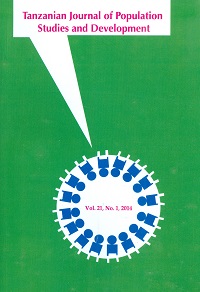Can ' t a Girl Have it All? Interrogating Gender Paradigms in Ama Ata Aidoo ' s The Girl Who Can and Other Stories
Abstract
This article seeks to explore Ama Ata Aidoo ' s (2002) work for the purpose of interrogating how African feminists and/or women writers represent challenges facing African women, as well as suggested or implied solutions to their problems. The analysis interprets the stories ' Lice ' , ' Comparisons ' , ' The Girl Who Can ' , and ' Heavy Moments ' in an attempt to identify elements of women ' s oppression under patriarchy rule, and to what extent women can challenge that system. Although some female characters in these stories have proved to challenge the system and subverted men ' s hierarchy, the underlying implications as to what a woman ought to do to overcome the oppression leaves a lot to be desired. The article attempts to disentangle Aidoo's narratives, and in the process of disentangling it demonstrates newly established feminist constructs that ought to be subverted.
References
Amadume, I. 2000. Daughters of Goddess Daughters of Imperialism: African Women, Culture, Power and Democracy. London: Zed Books Ltd.
Aidoo, A. A. 2002. ' The Girl Who Can and Other Stories ' . In Ama A. Aidoo, The Girl Who Can and Other Stories. Oxford: Heinemann. pp. 27 €“33.
€”. 2002. ' Comparisons ' . In Ama A. Aidoo, The Girl Who Can and Other Stories. Oxford: Heinemann. pp. 34 €“45.
€”. 2002. ' Heavy Moments ' . In Ama A. Aidoo, The Girl Who Can and Other Stories. Oxford: Heinemann. pp. 63 €“71.
€”. 2002. ' Lice ' . In Ama A. Aidoo, The Girl Who Can and Other Stories. Oxford: Heinemann, pp. 93 €“104.
Arndt, S. 2002. The Dynamics of African Feminism: Defining and Classifying African Feminist Literatures. Translated by Isabel Cole. Trenton, NJ: African World Press.
Davies, B. C. 1986. Introduction. Ngambika: Studies of Women in African Literature. In C. B. Davies & A. G. Adams (eds.). Trenton, New Jersey: African World Press. pp.1 €“23.
Hudgson, L. D. 2001. My Daughter €¦Belongs to the Government Now ' : Marriage, Maasai, and The Tanzanian State. In D. L. Hudgson & S. A. McCurdy (eds.). "Wicked" Women and The Reconfiguration of Gender in Africa. Portsmouth NH: Heinemann. pp. 149 €“167.
Lovett, M. 1996. She Thinks She is Like a Man: Marriage and (De)Constructing Gender Identity in Colonial Buha, Western Tanzania 1943 €“1960. Canadian Journal of African Studies, 30(1): 52 €“68.
Mezu, U. R. 1998. The Perspective of Other: Racism and Woman Power in Buchi Emecheta ' s The Rape of Shavi. Book Bird, 36(1): 12 €“16.
Moore, N. J. 1997. Interpreting Young Adult Literature: Literary Theory in The secondary Classroom. New Hampshire: Boynton/Cook Publishers.
Nfah-Abbenyi, M.J. 1997. Gender in African Women ' s Writing: Identity, Sexuality, and Difference. Bloomington, IN: Indiana University Press.
Okeke, E. P. 2001. Negotiating Social Independence: The Challenges of Career Pursuit for Igbo Women in Postcolonial Nigeria. In D. L. Hudgson & S. A. McCurdy (eds.). "Wicked" Women and The Reconfiguration of Gender in Africa. Portsmouth NH: Heinemann. pp. 234 €“251.
Oyewumi, O. 2003. The White Woman ' s Burden: African Women in Western Feminist Discourse. In O. Oyewumi. African Women and Feminism: Reflecting on the Politics of Sisterhood. Trenton, NJ: African World Press. pp. 67 €“98.
Powel, J. 1997. Derrida for Beginners. New York: Writers & Readers.
Stimpson, R. C. 1992. Feminist Criticism. In G. Steven & G. Giles. Redrawing the Boundaries: The Transformation of English and American Literary Studies. New York: MLA. pp. 252 €“270.
Taiwo, O. 2003. Feminism in Africa: Reflections on the Poverty of Theory. In O. Oyewumi. African Women and Feminism: Reflecting on the Politics of Sisterhood. Trenton, NJ: African World Press. pp. 45 €“56.
Thomson, A. 2006. Deconstruction. In P. Waugh (ed.). Literary Theory and Criticism: An Oxford Guide. Oxford: Oxford University Press. pp. 298 €“318.
Trites, S. R. 1997. Waking Sleeping Beauty. Iowa: University of Iowa Publishing.
Yenika-Agbaw, V. 2008. Individual vs Communal Healing: Three African Females Attempting at Constructing Unique Identity. Children ' s Literature Association Quarterly, 27: 121 €“128.
€”. 2008. Representing African Children ' s Literature: Old and New Ways of Seeing. New York: Routledge.


